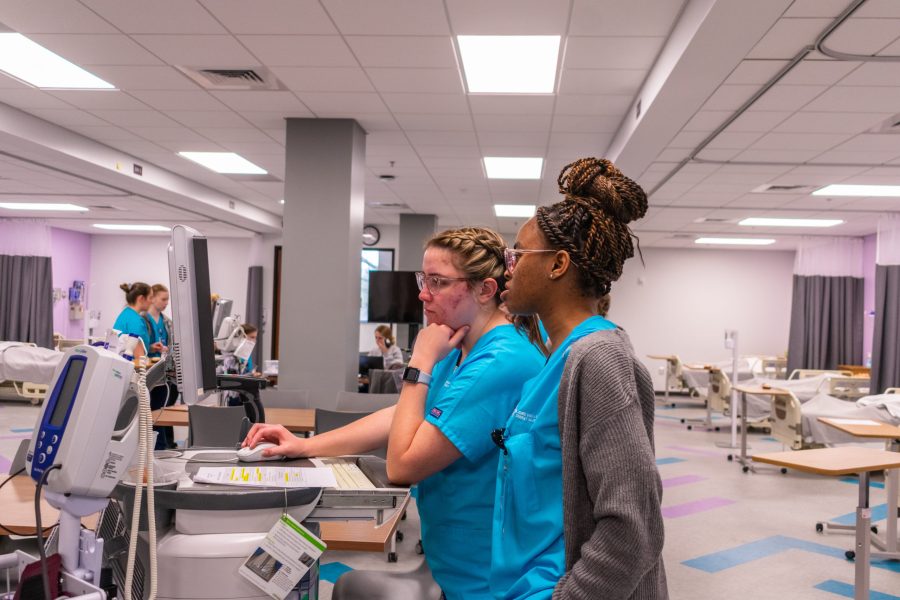Students at BJU are required in many programs to pass a sophomore checkpoint in order to show they have the skills needed for their major.
According to Registrar Dan Smith, 57 programs require sophomore checkpoints, also known as sophomore platforms or midpoint evaluations.
Most of these checks apply to majors in the School of Fine Arts and Communication. Sharyn Robertson, head of the cinematic arts department, said, “The sophomore platform gives [cinema students] a trial run at [their] major capstone project.”
April Schwingle, head of the studio art department, said, “[A midpoint review] is an opportunity for a committee of Art + Design faculty to look at a student’s work and patterns in their achievement and to evaluate whether our degree program is a good fit for that student at this point in their life.”
In the school of Health Professions, Megan Lanpher, chair of the Division of Nursing, said the purpose of the nursing sophomore check “is to assess whether a student meets the prerequisite requirements to begin nursing clinical classes.”
The nursing checkpoint also assesses a student’s motivation and determination.
Sophomore nursing students participate in an interview with Lanpher where she questions them about their goals and plans for being successful in the nursing program.

Photo: Melia Covington
Engineering is another major that requires an interview as part of their sophomore check. Bill Lovegrove, head of the department of engineering, said, “The purpose [of the sophomore check] is to help a student determine if engineering is the right program for them or if they should consider a different career path.”
The process of a sophomore check looks different for every major that requires one.
Fashion design students, for instance, go through an extensive process, including a written test, leading up to their sophomore check in March.
Anna Pretlove, the program coordinator for fashion design, said, “The purpose of this check is to assess whether the student should continue in the major and proceed to upper level courses, or if a shift in majors should be considered.”
This review is high stakes for fashion design students as they present work from the various classes they have taken leading up to this point.
The work they present, according to Pretlove, includes “still life drawings, … constructed button up collared shirt, constructed pants with a fly zipper, flat patterning design book, a fully designed and constructed halfscale look and many other projects from their first two years in the program.”
For a fashion design student, the sophomore check could validate their talent, or it could change the trajectory of their entire career, academic and otherwise.
For music students, the process starts before freshman year even begins. Students audition and get feedback at the beginning and end of freshman year.
Paul Overly, a faculty member in the department of instrumental studies, said, “Each program (keyboard, orchestral instruments, voice or strings) differs somewhat, but they all involve preparing 15-20 minutes of solo music for performance. In some programs they might also play scales, or sight read or play an etude as well.”
This process, Overly pointed out, is one that students do not go through on their own. He said, “From the time [students] enroll, their faculty coaches are working with them to help bring them to this point.”
A physics candidacy check can take place whenever a student has finished particular classes, according to Brian Vogt, head of the department of chemistry and physics.
Vogt said, “The committee never denies candidacy to anyone that meets or exceeds those standards. … They look specifically at the students’ grades in two semesters of calculus and two semesters of calculus-based general physics.”
Students can benefit in many ways from these sophomore platforms. Not only can they solidify the information students already know, but they can also help students grow and learn new things as they go through their various procedures.
Robertson said that the “[platform] helps the students see whether this is the field they want to go into and whether they will thrive in the program as it gets more intense.”
In the end, whether a student decides to follow a different path or continue in their major, sophomore platforms help students prepare for and take the next steps in their journey.





















































